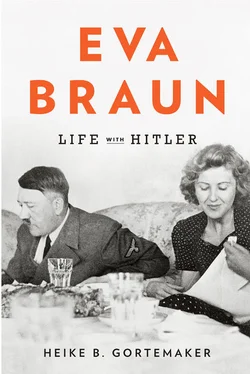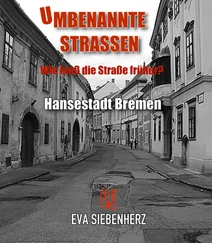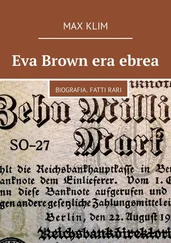The same motives that led Hoffmann to disguise his political role within the Nazi system may also have led him to keep his knowledge of Hitler’s private life to himself. Hitler’s relationship with Eva Braun—which did, after all, begin in Hoffmann’s photography shop—was another object of the denazification court’s investigations: he was accused of having used the relationship between his young employee and the NSDAP leader “to gain political power.” Thus we can hardly expect Hoffmann to shed light on the dark corners of the relationship between Hitler and Eva Braun. His primary concern was to make his lack of knowledge and distance from the events plausible to the court. Thus he spoke of a “highly unromantic acquaintance” and kept silent about his own interactions with Eva Braun and her family. 48
In short, the question of whether Hoffmann was, as is often claimed in retrospect, finally responsible for having brought about the relationship between Hitler and Eva Braun can be answered only speculatively. It is also impossible to tell what the personal relationship was between Hoffmann and his second wife, Erna, and his prominent friend’s girlfriend, who had no official existence but nonetheless played a special role in Hitler’s life. Still, Braun’s younger sister Gretl also worked as one of Hoffmann’s employees later, which suggests that Hoffmann was to some extent responsible for the two sisters’ financial security. And pictures from Gretl Braun’s second wedding in 1950 show that his connection was not entirely broken off after the end of the war. 49In any case, Hoffmann’s description of the events connected to Eva Braun in his 1955 memoir remains curiously vague and incomplete, not least because the denazification proceedings against him were concluded only shortly before his death on December 16, 1957. Hoffmann’s memoirs thus need to be read as fundamentally a perpetrator and collaborator’s attempt to exonerate himself. 50
2. MUNICH AFTER THE FIRST WORLD WAR
When Eva Braun met Hitler in Munich, in the fall of 1929, the Bavarian capital was already fast in the grip of the Nazi Party. Since the NSDAP’s reestablishment in 1925, the number of Party members had more than tripled and it was no longer merely one of many Populist-nationalist movements: it had won the field from all rivals in only four years. It put forward candidates in Landtag elections throughout Germany and had achieved its first successes. But even though Hitler, the Party’s leader and most successful hatemonger, had already received nationwide attention, appearing before a crowd of sixteen thousand people for the first time in Berlin, on November 16, 1928, his base of power remained Munich. There, in his favorite city, he had been an attraction for years. Every week he filled beer halls such as the Hofbräuhaus with thousands of listeners. In addition, the fourth convention of the NSDAP, in Nuremberg on August 1–4, 1929, was his first successful propaganda spectacle, one that would soon be followed by many more. 1
Why were the National Socialists so successful in Bavaria? After Germany’s defeat in World War I, what was it there that provided such a fertile breeding ground for nationalism and antidemocratic and anti-Semitic ideologies? One explanation is the way that radical political transformations were set in motion and carried out in the Kingdom of Bavaria during the final phase of the war. As is well known, the German Revolution of 1918–1919, or November Revolution, started in the Bavarian capital, Munich. It lasted longer and was more radical there than anywhere else in Germany. Even before the end of hostilities—on November 7, 1918, four days before the armistice was officially signed in a railroad car near the northern French city of Compiègne—exhaustion with the war, destitution, and the accompanying political radicalization had resulted in a speedy end to the centuries-old Bavarian Wittelsbach monarchy. King Ludwig III fled Munich after a mass rally led by Kurt Eisner, a Jewish journalist and radical socialist, two days before the fall of Kaiser Wilhelm II in Berlin and the abolition of the monarchy in the whole German Empire. For members of the radical right in Munich, this sequence of events gave rise to the so-called Dolchstoss Legend, the fabrication according to which Jews and Communists had “betrayed” their own country with a “stab in the back” and caused Germany to lose the war. Nazi propaganda would make successful use of this legend against “Jewish Bolshevism” a few years later. 2
A provisional revolutionary government, under Eisner, took power and declared itself the “Free Republic of Bavaria” and the “Democratic Social Republic of Bavaria,” with the motto “Long live peace! Down with the royal family!” Eisner took over the leadership of the hastily formed Council of Workers, Soldiers, and Farmers. However, after having, in Eisner’s words, “swept away the old junk of the Wittelsbach kings,” the new government proved to be completely incompetent. 3Agrarian reform plans on the Soviet model were not in fact a suitable way to solve the economic and social problems affecting Bavaria. In addition, Eisner himself, who imagined a “society of spirits” and saw himself as representing a new, pacifist Germany, was utterly unsuited to be a politician. His revolutionary comrades—described by the German historian Hagen Schulze as “literati, chansonneurs, con artists, and psychopaths, without exception”—hardly presented a better picture. 4Eisner’s radical-left government was therefore diametrically opposed to the mostly conservative population, especially in rural areas. Yet the representatives of the upper middle class, too, generally disliked Eisner’s regime. Thomas Mann, for instance, as early as November 8, 1918, came to the conclusion that Munich—and Bavaria as a whole—was now “governed by Jewish scribblers,” “racketeer[s],” “profiteer[s]” and “Jew-boy[s].” He wondered, “how long will the city put up with that?” 5
Eisner was not a native of Bavaria and from the beginning he was subject to relentless, unscrupulous anti-Semitic attacks. He received threatening letters and there were even calls for his assassination. The campaign against him ended with his being shot dead on a public street by Anton Graf von Arco-Valley, a student and former officer, on February 21, 1919, after the Bavarian National Assembly elections and shortly before he was to step down. Since there was no civil order worthy of the name, anarchy threatened after the murder. “They never understood Eisner,” the writer Ricarda Huch wrote about her fellow Bavarians after the bloody deed,
just as little as he understood them. How could they? There wasn’t the slightest trace of Bavarian royalism, coziness, roughness, and sloppy good nature in him—he was an abstract moralist, who wrote perfectly good drama criticism and no doubt terrible poems. Criticism and theory, though, do not make a ruler any more than they make an artist: one needs to be able to actually do it. 6
What followed were two Soviet-style republics that plunged Munich into political chaos once and for all. The first, under Ernst Niekisch, leader of the “Munich Central Council of the Bavarian Republic,” dissolved the parliament and removed Eisner’s legal successor, the social-democratic prime minister. In accordance with the Soviet ideal, the government broke off all “diplomatic relations” with the German government. It lasted only one week. The government that followed, run by the Munich Communist Party and supported by the Soviet Union, lasted all of two weeks. Nevertheless, the concomitant violence, with bloody battles between the communist revolutionaries and their opponents, were to shape the political atmosphere for years. For example, street fighting in Munich on May 3, 1919, in which the German army and specially formed Bavarian Freikorps [4] Translator’s note: German paramilitary organizations, made up largely of defeated German soldiers returning from World War I and often deployed semiofficially to fight communists. Many Freikorps members later joined the SA and SS.
units defeated the so-called dictatorship of the Red Army, cost the lives of more than six hundred people. The leaders of the Soviet-style republic were either killed by the Freikorps or received heavy sentences for high treason, as did the writers Ernst Toller and Erich Mühsam. Thousands of supporters of the “Spartacists” ended up in jail. The Bavarian capital thereby became the main stronghold of an extraordinarily pronounced anticommunism and radical anti-Semitism. 7
Читать дальше












